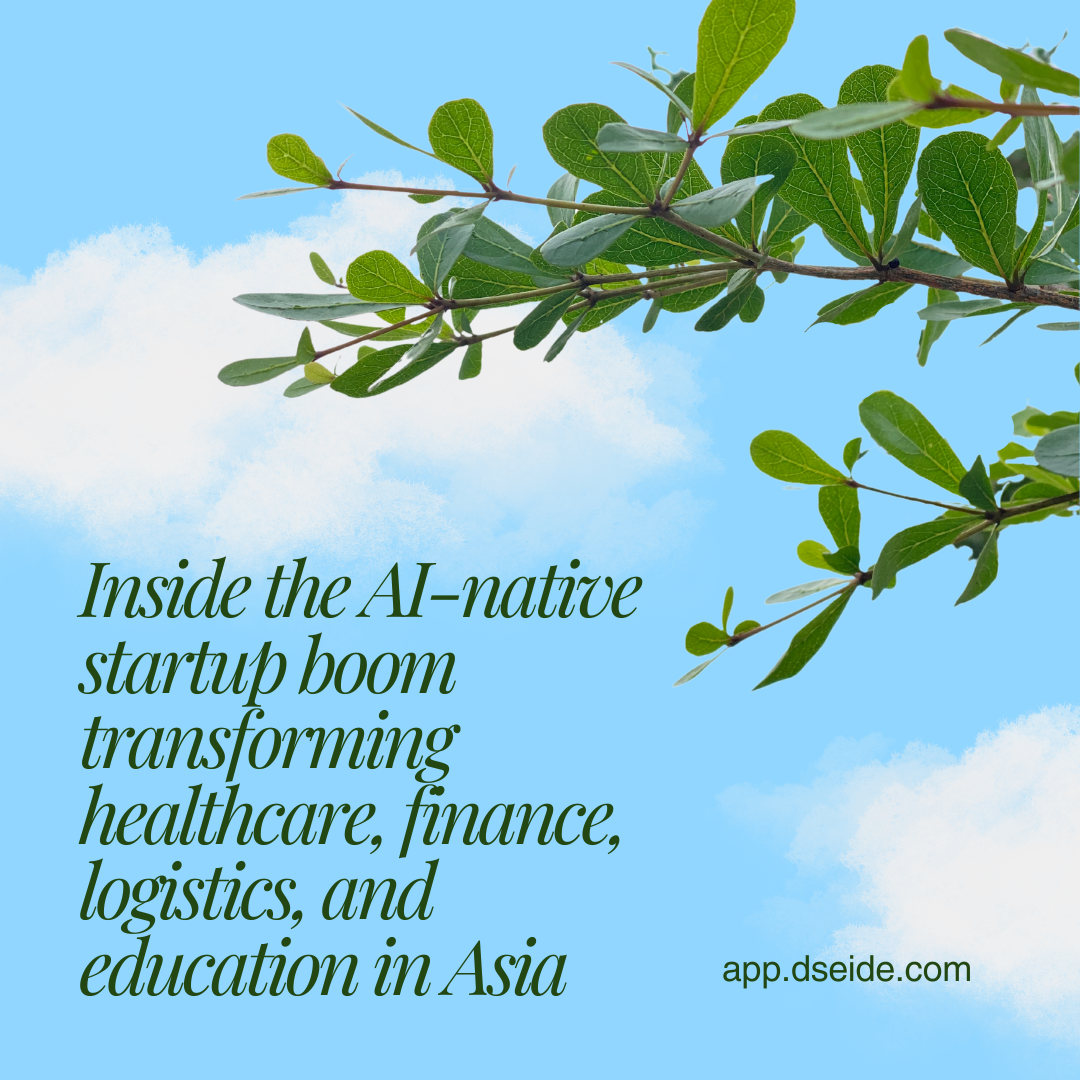AI-first startups in APAC are transforming core industries by redefining business models, boosting efficiency, and opening new market opportunities.
Across the Asia-Pacific region, a new wave of AI-first startups is altering how industries operate. Built with artificial intelligence at their core, these ventures are layering AI onto legacy systems and creating entirely new ways to deliver value.
Unlike traditional firms tied to high overheads and rigid models, AI-native companies operate with leaner structures, data-driven insights, and scalable platforms. These startups are transforming existing workflows and expanding access to previously underserved markets, from remote diagnostics to micro-lending.
In 2024, global AI startups attracted approximately US$131.5 billion in venture capital investments, a significant increase from previous years. While specific figures for the Asia-Pacific region are not readily available, the region has seen a notable uptick in AI startup funding, reflecting growing investor interest. This signals a regional realignment, where startup ecosystems in countries like Singapore, India, China, and South Korea are becoming drivers of business model reinvention.
AI in healthcare is accelerating diagnosis and democratising access
AI startups are transforming how healthcare diagnostics and treatments are developed and delivered. Their focus is on improving accuracy and increasing reach and speed in ways that traditional providers struggle to match.
For instance, India’s Qure.ai uses deep learning to analyse chest scans and detect conditions such as tuberculosis and lung nodules. Its AI can interpret medical images within seconds, enabling fast triage in hospitals and rural clinics alike. The company operates on a diagnostics-as-a-service model, charging healthcare providers per scan. With over 90 countries using its tools and a recent US$65 million Series D round, Qure.ai is expanding partnerships with global pharma firms such as AstraZeneca.
Source: Techedt
#healthcarestartupindia #dseidehealthcarenetwork
Across the Asia-Pacific region, a new wave of AI-first startups is altering how industries operate. Built with artificial intelligence at their core, these ventures are layering AI onto legacy systems and creating entirely new ways to deliver value.
Unlike traditional firms tied to high overheads and rigid models, AI-native companies operate with leaner structures, data-driven insights, and scalable platforms. These startups are transforming existing workflows and expanding access to previously underserved markets, from remote diagnostics to micro-lending.
In 2024, global AI startups attracted approximately US$131.5 billion in venture capital investments, a significant increase from previous years. While specific figures for the Asia-Pacific region are not readily available, the region has seen a notable uptick in AI startup funding, reflecting growing investor interest. This signals a regional realignment, where startup ecosystems in countries like Singapore, India, China, and South Korea are becoming drivers of business model reinvention.
AI in healthcare is accelerating diagnosis and democratising access
AI startups are transforming how healthcare diagnostics and treatments are developed and delivered. Their focus is on improving accuracy and increasing reach and speed in ways that traditional providers struggle to match.
For instance, India’s Qure.ai uses deep learning to analyse chest scans and detect conditions such as tuberculosis and lung nodules. Its AI can interpret medical images within seconds, enabling fast triage in hospitals and rural clinics alike. The company operates on a diagnostics-as-a-service model, charging healthcare providers per scan. With over 90 countries using its tools and a recent US$65 million Series D round, Qure.ai is expanding partnerships with global pharma firms such as AstraZeneca.
Source: Techedt
#healthcarestartupindia #dseidehealthcarenetwork
AI-first startups in APAC are transforming core industries by redefining business models, boosting efficiency, and opening new market opportunities.
Across the Asia-Pacific region, a new wave of AI-first startups is altering how industries operate. Built with artificial intelligence at their core, these ventures are layering AI onto legacy systems and creating entirely new ways to deliver value.
Unlike traditional firms tied to high overheads and rigid models, AI-native companies operate with leaner structures, data-driven insights, and scalable platforms. These startups are transforming existing workflows and expanding access to previously underserved markets, from remote diagnostics to micro-lending.
In 2024, global AI startups attracted approximately US$131.5 billion in venture capital investments, a significant increase from previous years. While specific figures for the Asia-Pacific region are not readily available, the region has seen a notable uptick in AI startup funding, reflecting growing investor interest. This signals a regional realignment, where startup ecosystems in countries like Singapore, India, China, and South Korea are becoming drivers of business model reinvention.
AI in healthcare is accelerating diagnosis and democratising access
AI startups are transforming how healthcare diagnostics and treatments are developed and delivered. Their focus is on improving accuracy and increasing reach and speed in ways that traditional providers struggle to match.
For instance, India’s Qure.ai uses deep learning to analyse chest scans and detect conditions such as tuberculosis and lung nodules. Its AI can interpret medical images within seconds, enabling fast triage in hospitals and rural clinics alike. The company operates on a diagnostics-as-a-service model, charging healthcare providers per scan. With over 90 countries using its tools and a recent US$65 million Series D round, Qure.ai is expanding partnerships with global pharma firms such as AstraZeneca.
Source: Techedt
#healthcarestartupindia #dseidehealthcarenetwork




